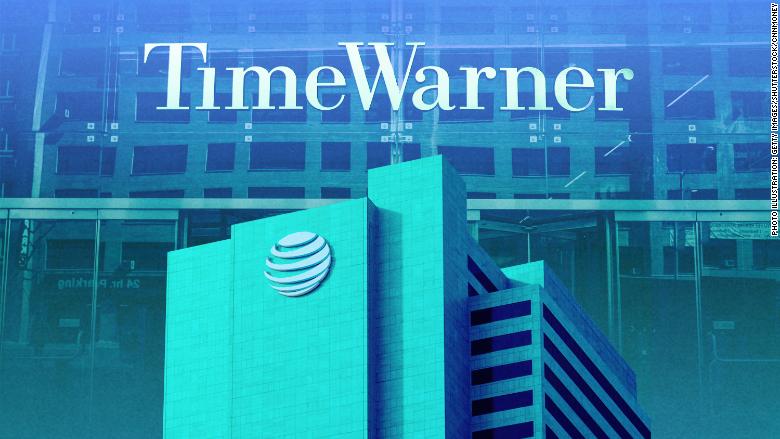
AT&T and Time Warner attorneys on Tuesday questioned the method and motivation behind a consulting firm's research used as a key factor in the government's lawsuit to stop AT&T and Time Warner's merger.
Stefan Bewley, a director at the San Francisco-based consulting firm Altman Vilandrie & Company, was called to the stand by the Justice Department to discuss his firm's research, which was conducted last year on behalf of Charter, a cable and broadband company that is publicly opposed to AT&T's proposed $85 billion takeover of Time Warner.
The study was commissioned in November of 2016, about a month after AT&T announced the merger. It looked at many networks and included Charter's potential subscriber loss if it were to lose Turner Broadcasting, a division of Time Warner that includes channels such as TNT, TBS and CNN.
The findings were also a key factor in the study conducted by U.C. Berkeley professor Carl Shapiro, who is serving as an expert witness for the government in the trial. Shapiro's analysis found that a combined AT&T and Time Warner company could cause cable prices to increase by about 45 cents per month, per subscriber.
Under direct questioning from Justice Department attorney Craig Conrath, Bewley said that his research found that Charter could suffer a 9% subscriber loss due to a Turner blackout -- when a distributor drops access to a channel during carriage negotiations.
Using that 9% rate, Shapiro came to his conclusion about the price increase should the merger go through.
The government sued to stop AT&T's bid to take over of Time Warner, CNN's parent company, arguing that it violates antitrust law because the merger will raise prices for consumers and harm competition, like Charter, because AT&T would be able to withhold certain networks from its competitors as a negotiation tactic, and attract more customers to their services. AT&T has argued that prices would not necessarily go up, and that it would have no reason to keep its content from competitors because they'd then make less ad revenue. Attorneys for AT&T and Time Warner have argued that the acquisition is necessary for AT&T to compete with the likes of Facebook, Apple, Amazon, Netflix and Google, as those companies gain share in the content market. Government lawyers have argued that AT&T and Time Warner are not directly competing with those companies in the same way.
But during cross-examination with AT&T and Time Warner lead attorney Dan Petrocelli, Bewley acknowledged that initially the 9% result was actually 5%.
Had Shapiro used the 5% subscriber loss estimate in his analysis, he would have found no price increase due to the merger, Petrocelli said.
Bewley said he decided to make adjustments to his initial findings due to where Turner fell on different categories of television programming weighted according to popularity. Bewley said Turner fell somewhere between category two (moderately popular programming) and category three (niche channels); as such, the firm made an exception to its methodology to place Turner in another group. With that modification, Shapiro's model showed a price increase for cable consumers after the merger.
Petrocelli introduced emails sent from Bewley that raised questions about the change to the research. In one from April 2017, Bewley made no mention to Charter representatives that the research would need to be changed, nor did he request more time to update the research. But in an email sent to Altman Vilandrie colleagues days later, after he met with Charter, Bewley said that Turner's findings would need to be edited. Days later, Petrocelli said, Charter met with the Justice Department to discuss its opposition to the merger and would later give the study to the Justice Department to use.
Asked by both Conrath and Petrocelli, Bewley insisted that no one instructed him to make the change, which he said was proposed by his firm.
Bewley took the stand following testimony in the morning from Richard Warren, Turner's head of content distribution.
Warren defended Turner's arbitration offer, which was sent to distributors after the government sued to stop the merger. The arbitration offer states that a third party would mediate disputes between distributors and Turner should AT&T succeed in buying Time Warner. Under the deal, both sides would make an offer, and the arbiter would decide which one wins. Turner also pledged that its content can't be withheld from distributors during arbitration.
The government suggested that since HBO is not a party to the arbitration offers, it could work in concert with Turner as leverage in negotiations with distributors. Warren said the offer puts Turner in a weaker position because Turner can't walk away once they enter arbitration under the offer, while a distributor could at any point.


